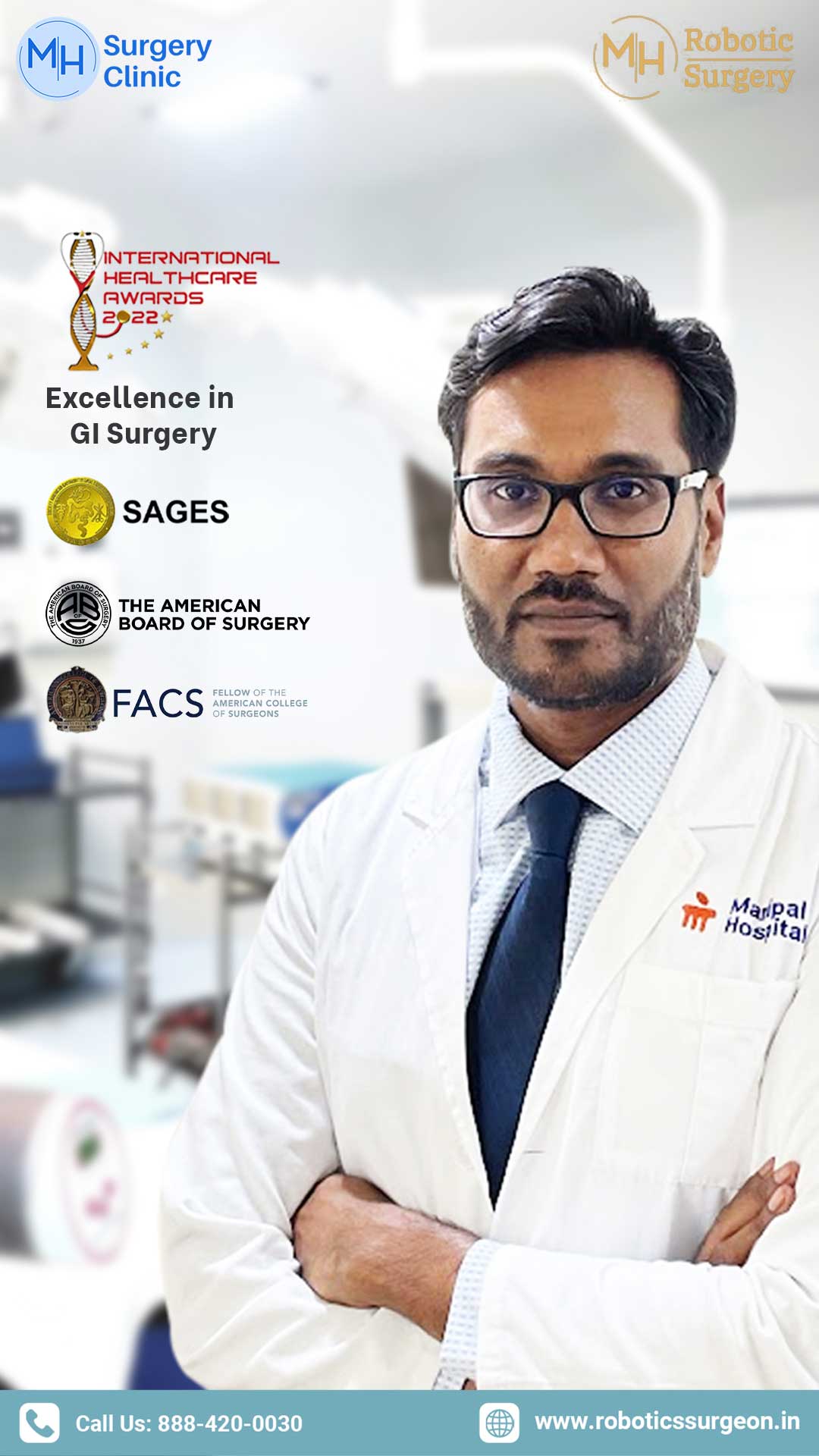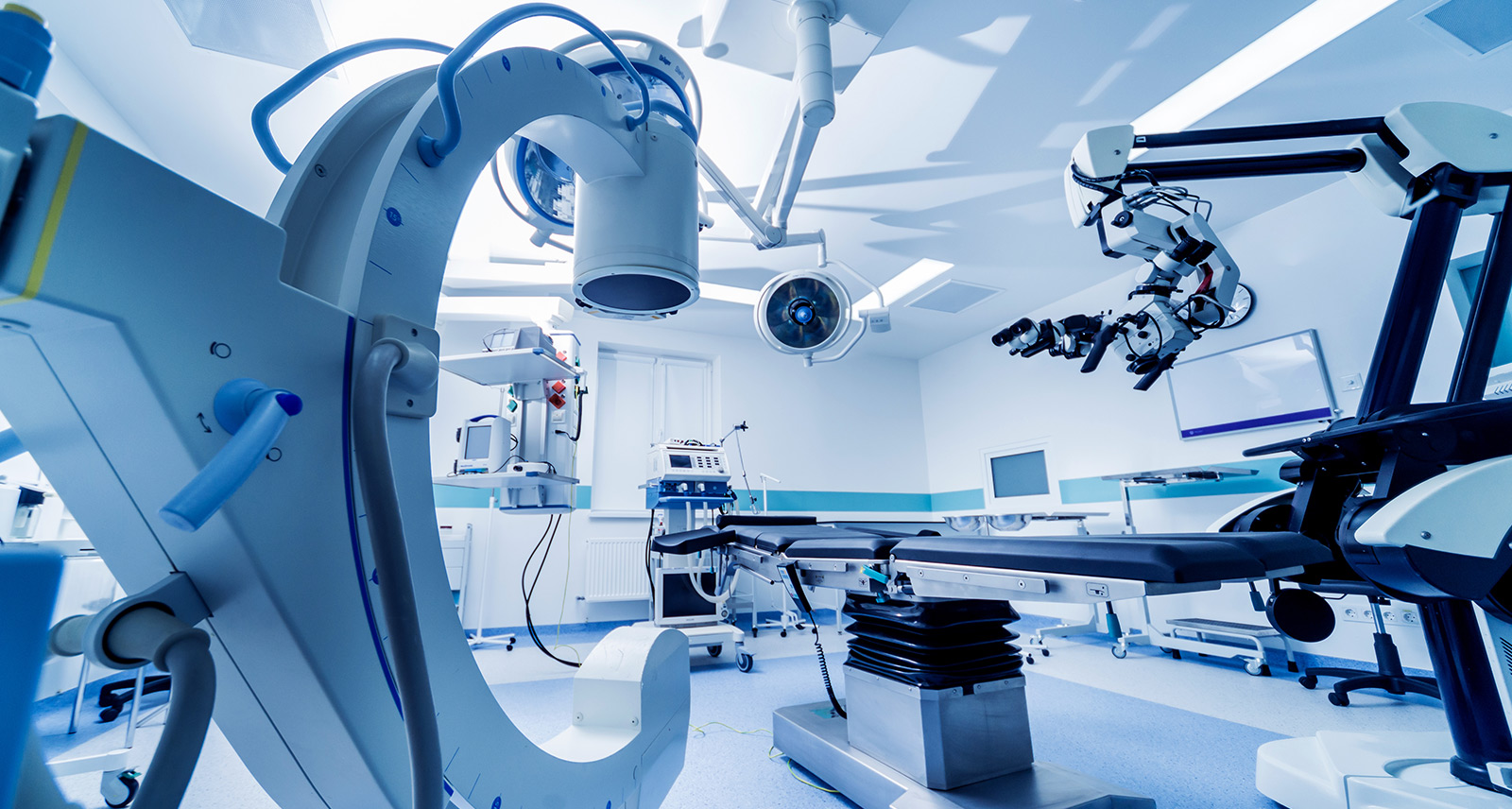
Robotic-Assisted Cancer Surgery
We believe minimally invasive care is life-enhancing care
Revolutionizing Cancer Treatment
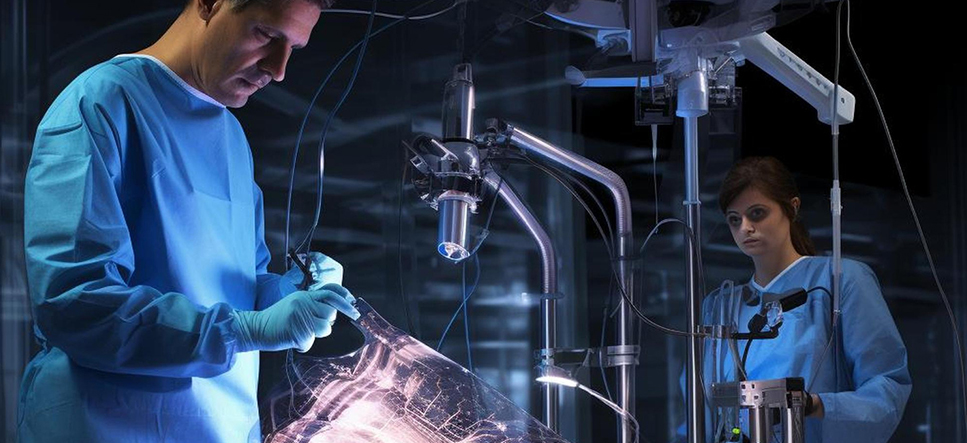
Robotic cancer surgery serves as a glimmer of light among the bleak panorama of cancer treatment. Patients dealing with this difficult illness now have access to state-of-the-art procedures that provide both accuracy and minimally invasive techniques thanks to technology breakthroughs driving the field forward. This is a major change from conventional techniques, where more extensive incisions, longer recovery periods, and more agony following surgery are commonplace with open prostate surgeries.
The da Vinci Surgical System
The da Vinci Surgical System, an engineering marvel that embodies innovation in medical technology, is essential to the success of robotic cancer surgery. Surgeons at MH Robotic Surgery Clinic are now able to perform complex procedures with unparalleled precision because of this advanced platform, which gives them greater control and dexterity. The robotic surgery makes it easier to introduce tiny equipment and a high-definition camera into a series of tiny incisions, giving a magnified, three-dimensional image of the operating field. Robotic prostatectomy surgeons can precisely target malignant tissue with this immersive view, protecting important structures, reducing collateral harm, and improving patient outcomes.
Versatility Of Robotic Prostatectomy
Robotic prostate surgery in India has seen a vital increase in popularity just because of its minimally invasive approach and advanced technology, attracting patients looking for high-quality treatment options for prostate cancer.
Robotic-assisted prostate surgery can be used to treat a wide range of cancers, including colorectal, gynecologic, lung, and prostate cancers. The robotic surgery’s versatility enables customized treatment approaches that emphasize effectiveness and patient-centric care, meeting the specific needs of each patient. Additionally, the ergonomic design of the system reduces surgeon fatigue, allowing for lengthy procedures to be performed with continued accuracy and precision.
For example, patients receiving robotic prostate operation have many benefits over conventional methods. This revolutionary method has the potential to greatly improve patient quality of life and long-term prognosis because of its reduced blood loss, decreased risk of complications, and accelerated recovery durations.
Future Outlook
Robotic cancer surgery in India represents a paradigm leap in oncological care by fusing creativity, accuracy, and compassion. The field of robotic surgery will surely advance as long as technology does, opening up new avenues and changing the norm for care in the never-ending battle against cancer. A future where cancer is defeated with unrelenting dedication and state-of-the-art knowledge is closer with every innovation that holds the potential for better results and greater patient
Read Also: Liver Surgery, Stomach Surgery
We are making robotic surgery a new standard of care

Patient-Centered Care
Prioritize patient safety and well-being in the development and implementation of robotic care. Involve patients in the decision-making process, provide clear information, and address their concerns and preferences. Conduct rigorous clinical trials and studies.
Interdisciplinary Teams
A multidisciplinary team of experts, including clinicians, roboticists, engineers, data scientists, and healthcare administrators, to collaborate on this initiative. Encourage open communication and collaboration which leads to better patient outcomes.
Cost-Effectiveness
Assess the cost-effectiveness of robotic care and explore ways to make it more accessible to a broader range of patients. Collaborate with healthcare payers and providers to ensure reimbursement for robotic procedures.
Education and Training
Develop comprehensive training programs for healthcare providers, ensuring that they have the necessary skills and knowledge to use robotic systems effectively. Offer ongoing education and certification and update on the latest advancements.What to expect with robotic-assisted surgery
If you or someone you know is scheduled for robotic-assisted surgery, it’s natural to have questions about what to expect before, during, and after the procedure. Robotic surgery is a transformative medical technology that has revolutionized the field of surgery by enhancing the capabilities of surgeons and improving patient outcomes. Here’s an overview of what you can typically anticipate when undergoing robotic-assisted surgery:
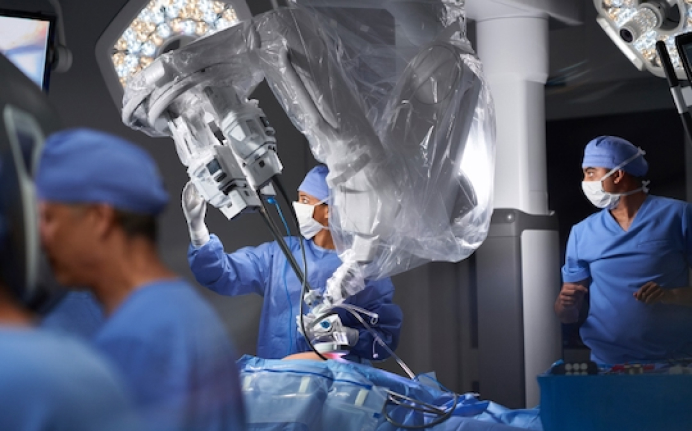
Before the Surgery
Consultation: You will have one or more consultations with your surgeon to
discuss your medical condition, the surgical procedure, and whether
robotic-assisted surgery is the right option for you and any alternatives if there are any.
Preoperative Evaluation: Before the surgery, you may need to undergo several tests and evaluations to ensure you are a suitable candidate. This may include blood tests, imaging scans, and a review of your medical history.
Preparation: Your surgeon and healthcare team will provide specific instructions about how to prepare for the surgery. This may involve fasting for a certain period, discontinuing certain medications, and taking a shower with a special soap to reduce the risk of infection.
During the Surgery
Anesthesia: You will be given anesthesia to keep you pain-free and asleep during
the surgery. The type of anesthesia (general or local) will depend on the specific procedure and your medical condition.
Operating Room Setup: In the operating room, the surgical team will position you on the operating table and prepare the surgical area. The robotic system will be set up, and your surgeon will be seated at the console.
Robotic Assistance: Your surgeon will control the robotic arms and instruments from the console. The robotic system provides enhanced precision and dexterity during the surgery.
After the Surgery
Recovery Room: After the surgery, you will be taken to a recovery area where
you'll gradually wake up from anesthesia. A nurse will monitor your condition
closely.
Pain Management: You may experience some pain or discomfort after surgery. Your healthcare team will provide pain management medications as needed.
Hospital Stay: The length of your hospital stay will vary depending on the type of surgery and your individual recovery progress. Many robotic-assisted surgeries result in shorter hospital stays compared to traditional open surgery.
Why choose Robotic Surgery
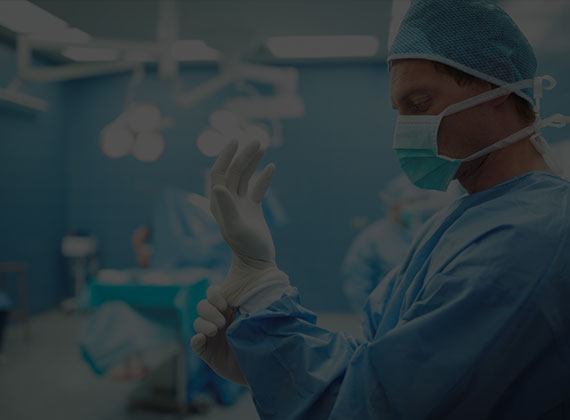
Enhanced Vision
The robotic system delivers 3D high-definition views, giving your surgeon a crystal clear view of the surgical area that is magnified 10 times to what the human eye sees. This helps the surgeon perform surgery with greater accuracy and smoothness.
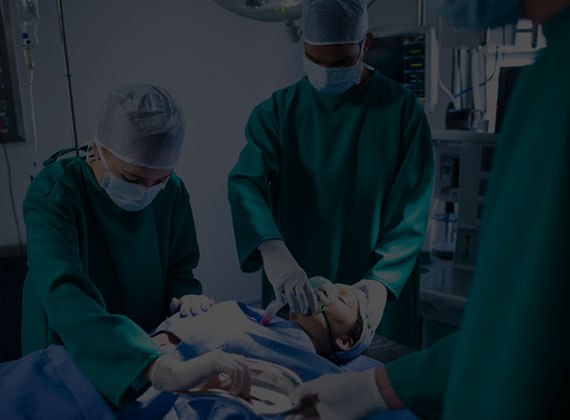
Precise movements
Robotic systems provide high precision and delicate motor control, lowering the possibility of human error. Surgeons utilize tiny devices that mimic human hands. Built-in tremor-filtration technology helps in smooth and precise movements.
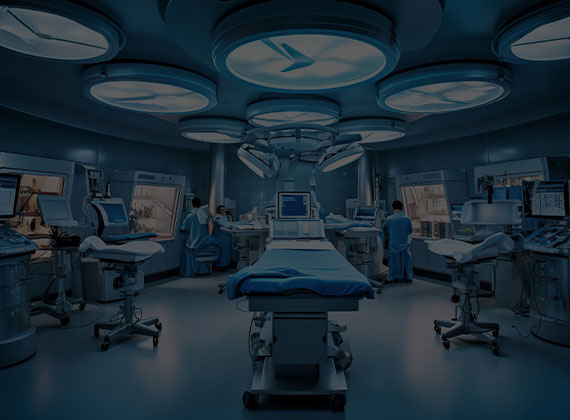
Minimal Blood loss
Robotic surgery is minimally invasive, meaning it involves small incisions wiith minimal tissue damage resulting in less pain, and reduced scarring. Less blood means results in faster healing, less time in hospital and return to life sooner than expected.
FAQs
Yes, robotic surgery offers enhanced precision and reduced invasiveness, making it the best choice for cancer treatment. Dr. Manjunath Haridas specializes in robotic techniques, ensuring optimal outcomes. The advanced technology utilized minimizes trauma, accelerates recovery, and contributes to successful cancer interventions, establishing it as a superior approach.
After robotic cancer surgery, the length of hospital stay is usually reduced, usually to a few days. Comfort and speedy recovery are the top priorities for the patients at MH Robotic Surgery Clinic, guaranteeing a prompt return to regular activities.
Following a robotic prostatectomy, life expectancy is usually unaltered. Specializing in this cutting-edge surgery, Dr. Manjunath Haridas puts the health of its patients first. After a successful robotic-assisted prostate surgery, patients can expect a fulfilling and healthy life since our professional staff uses state-of-the-art technology to improve outcomes.
Robotic prostate operation boasts high success rates. The immensely skilled team of healthcare professionals at MH Robotic Surgery Clinic utilizes state-of-the-art technology, ensuring precision and effectiveness in every robotic prostatectomy. We prioritize optimal outcomes for patients, providing comprehensive care to enhance the success rate and facilitate a successful recovery after robotic prostate surgery.
Prostate surgery may not be appropriate for persons with certain medical disorders or those who have a high number of comorbidities. MH Robotic Surgery Clinic assesses each case on an individual basis and helps patients choose the best course of action, whether it be open prostate surgery or robotic assistance.
